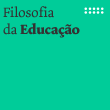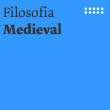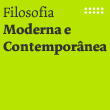|
|
Integrado(a) no IF
Professor/a Auxiliar
Investigador/a no Gabinete de Filosofia Moderna e Contemporânea
joaoap@netcabo.pt
[MLAG: PI Philosophy and Logic]
Born in Mozambique, 1966. BA (Philosophy); MA (Philosophy / Philosophy of Mind); PhD (Philosophy / Logic and Philosophy of Logic).
Teaches (since 1998) logic, history and philosophy of science (mainly history and philosophy of logic), philosophy of language and (history of) modern philosophy at FLUP.
His current areas of interest are (modern) logic, history and philosophy of logic, philosophy of mind and some issues in metaphysics.
Founding member and researcher (since 2005) of the MLAG group of the Philosophy Institute of the FLUP; founding member, and currently in the steering committee, of the Portuguese Society for Analytic Philosophy.
Work
Author of Superveniência, Materialismo e Experiência - Uma Perspectiva Sobre o Problema da Consciência em Filosofia da Mente (Porto, Campo das Letras, 2007).
-
[Abstract]
-
Based on the metaphilosophical notion of supervenience and on the modal framework sketched in order to formulate the weak, strong and global varieties of supervenience [Chapter 1], this book presents some of the most successful claims of contemporary materialism ? whether they are related to metaphysics or to the philosophy of science (including the ideas of reductionism and unity of science, even when the emergent or mereological aspects of the world have to be acknowledged) and the current (in general functionalist or computational) philosophy of mind [Chapters 2, 3 and 4].
-
The book then examines [Chapter 5] the problem of explaining conscious or phenomenal experience, concluding that such an explanation in fact depends on a particular kind of (global and/or strong) supervenience being favored ? one that isn?t logical, or logical-conceptual, but only natural or nomological. This outline of a solution ? due essentially to David Chalmers ? is still open, in a way that is more or less revolutionary in metaphysical terms, to a proper scientific investigation of the (strictly) conscious or phenomenal aspects of experience which supervene on the world?s physical (or perhaps protophenomenal) aspects, and this possibly without incurring in any violation of the currently known physical law.
His Ph.D. Thesis, which is titled George Boole e as origens da lógica moderna (João Branquinho, Supervisor), has been concluded in 2008.
-
[Abstract]
-
The main aim of the dissertation is to provide a perspective on the work of George Boole and the way it relates to the history of logic.
-
The relationship of Boole?s work to the previous fully traditional form of logic and to the most current form of modern logic, going back essentially to a tradition originating in Gottlob Frege but also to another tradition ? that of algebraic logic ? which was initiated by Boole, are both explained.
-
The influence of mathematics in the transformation of logic into a formal science at the hands of Boole, essentially involving an appeal to formal systems (or calculus), is considered, and an analysis of Boole?s ideas on the basically non hierarchical nature of the relationship between logic and mathematics, especially where algebra is concerned, is given.
-
Finally, and this is a more technical aspect of the dissertation, those aspects of Boole?s logic deemed most essential and characteristic are systematically presented.
Also, from 2006, ?Boole e Frege: matematização da lógica vs. logificação? in Perspectives on Rationality, Ed./Coord.: S. Miguens, C. E. E. Mauro (Porto, Ed. Faculdade de Letras da Universidade do Porto, 2006, p. 179-199).
-
[Abstract]
-
This article contrasts, from a historical point of view, the attempts at the formalization of logic that can be found in G. Boole and G. Frege, and which are associated respectively with the idea of a mathematization of logic and with the idea of a logification (of mathematics). The different approaches of these two authors have profound repercussions in how the formal nature of logic is conceived today. The article concludes by pointing out the different positions in which a boolean and a fregean find themselves in when considering the notion of validity and also the difficulty ? for a fregean ? of formulating the philosophical question about the priority of a semantic or syntactic notion of validity as these notions present themselves from a metalogical point of view.
|







